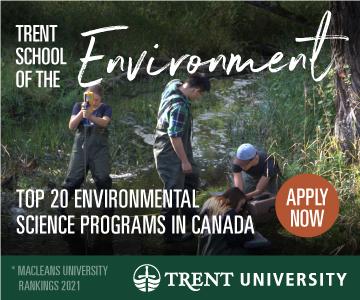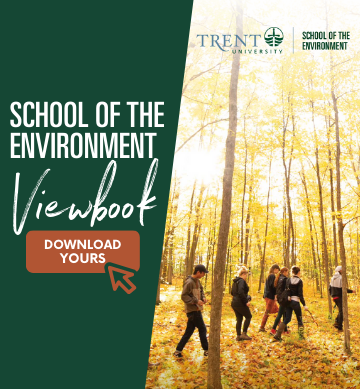In my internship, I was able to get a head-start on my honours thesis and gain invaluable work experience in my field. I applied my knowledge and skills in the field of environmental chemistry to develop methods for extracting and detecting antidepressants from freshwater mussels as part of a larger monitoring program in the Great Lakes Basin region. I was able to conduct a thorough literature review and gain an in-depth understanding of the current state of knowledge in mussel biomonitoring, contaminants of emerging concern, and pharmaceutical toxicology.
This experience provided me with opportunities to connect with others in my field, get to know my lab-mates, and network with professors and professionals across southern Ontario. Receiving this internship award was very meaningful to me, as it not only recognized my academic achievements, but provided financial assistance that allowed me to pursue my research interests and gain experience in Environmental Science and Studies.
During the summer between my third and fourth years of completing my undergraduate degree in Environmental Geoscience, I had the opportunity to work full-time researching for my undergraduate honours thesis. My thesis project focuses on finding ways to accelerate the rate of chemical reactions involving Magnesium-based minerals, such as periclase (MgO) and brucite [Mg(OH)2], under variable environmental conditions. The goal of this research is to contribute to the advancement of a MgO looping technology that can repeatedly capture CO2 from the atmosphere while using minimal resources, ultimately to mitigate climate change.
The internship allowed me to devote extensive time to my project. I developed skills such as effective study design, organization, data analysis, science communication, time management, how to effectively read scientific literature, and I greatly advanced my scientific writing. I developed practical skills learning how to use specific laboratory instruments, such as an x-ray diffractometer to identify minerals, a coulometer to measure total inorganic carbon, and I visited Western University to use their scanning electron microscope to investigate the morphology of my minerals at the micron-scale.
Through this experience I had opportunities to help other researchers with their projects. I assisted with fieldwork, applying tonnes of rock powder to forests in Haliburton and setting up field plots and soil sampling at the Trent Farm for enhanced rock weathering studies. Since my own research project was predominantly laboratory-based, these opportunities provided a great balance and kept my summer interesting, especially because I love getting outside!
The application process taught me research proposal writing skills. I encourage all students with even the slightest interest in research to apply for this internship. I am very grateful to have been selected for this opportunity and for all the invaluable knowledge and research skills I have learned along the way.
I am grateful to have received a TSE Undergraduate Research Internship (URI), which provided me with invaluable hands-on research experience. The funding from this award supported a longitudinal study at Alderville Black Oak Savannah, where we are investigating the relationship between restoration age and the degree of arbuscular mycorrhizal fungi (AMF) colonization. This work is crucial for understanding how soil microbial communities contribute to ecosystem recovery and resilience in prairie restorations.
With the support of the TSE URI, we were able to fund essential research costs, including summer student wages and equipment, allowing for a more comprehensive and detailed study. The experience not only strengthened my research skills but also deepened my appreciation for field ecology, restoration science, and microbial-plant interactions. This opportunity has been instrumental in shaping my academic and professional aspirations, and I highly encourage future students to apply for the TSE Undergraduate Research Internship to gain similar impactful experiences.




